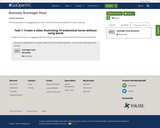
This activity will be an engaging way to learn most of the directional planes for basic anatomy.
- Subject:
- Life Science
- Material Type:
- Lesson Plan
- Author:
- Kathy Bosiak
- Date Added:
- 11/28/2019

This activity will be an engaging way to learn most of the directional planes for basic anatomy.
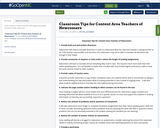
A list of tips for content teachers with beginning English learners in their classroom.
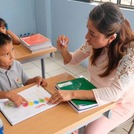
AbstractThe purpose of this phenomenological study was to explore the factors affecting elementary teacher’s ability to understand the academic needs of their racially, culturally, and ethnically diverse special education students and the ways in which their values and beliefs influenced their use of culturally responsive practices in the special education classroom. The findings from this study are significant because they could add to the knowledge base of strategies to close or eliminate the achievement gap of racially, culturally, and ethnically diverse students in special education programs. Furthermore, these experiences may provide an additional opportunity for local educational agencies (LEAS) to examine the impact of culturally responsive teaching practices on the achievement of RCED students in the special education classroom.
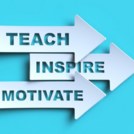
Looking to take your teaching to the next level? This EffectiveTeaching video has got you covered! Our program is designed with you in mind, providing you with the knowledge and skills you need to become a more effective educator. Whether you're a new teacher or have been in the field for years, this 10-minute video is just for you!
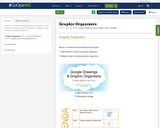
Attached is a PowerPoint presentation that explains
* Why teachers should use Graphic Organizers
* Multiple modes of creating Graphic Organizers

You 'll watch “How the Grinch Stole Christmas” in class today. There are countless ways in which homeostasis is disrupted in the Grinch and the Whos in this movie. Enjoy watching the film and then work collaboratively to analyze the anatomy and physiology applications related to the characters in this holiday classic. Assignment written by Heather Welsh on 12/8/18.
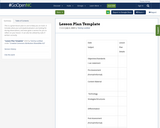
This is a great lesson plan to use to keep you on track. It includes what your principals/evaluators are looking for during observations, and even gives a section for you to reflect on your lesson. It can also be utilized by subs if written correctly.
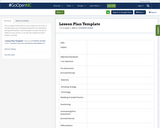
This is a great lesson plan to use to keep you on track. It includes what your principals/evaluators are looking for during observations, and even gives a section for you to reflect on your lesson. It can also be utilized by subs if written correctly.
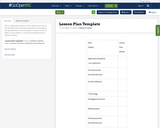
This is a great lesson plan to use to keep you on track. It includes what your principals/evaluators are looking for during observations, and even gives a section for you to reflect on your lesson. It can also be utilized by subs if written correctly.
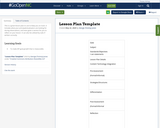
This is a great lesson plan to use to keep you on track. It includes what your principals/evaluators are looking for during observations, and even gives a section for you to reflect on your lesson. It can also be utilized by subs if written correctly.
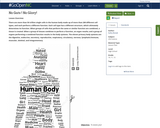
There are more than 50 trillion single cells in the human body made up of more than 200 different cell types, and each perform a different function. Each cell type has a different structure, which ultimately determines its function. When groups of cells that perform the same or similar function are combined, a tissue is created. When a group of tissues combines to perform a function, an organ results; and a group of organs performing a combined function results in the body systems. The eleven primary body systems are the digestive, endocrine, excretory, reproductive, respiratory, circulatory, nervous, lymphatic/immune, muscular, skeletal, and integumentary.Objective: To assess your knowledge of the human body prior to taking this course. You will revisit your life-size human body poster at the end of the year!

Primary teachers, did you know play is a research-based best practice? Children grow and learn in all developmental areas through their engagement in centers: language and literacy, cognitive, social emotional, and physical. Child initiated, hands-on experiences provide standards-based practice in a risk-free environment. In this recorded webinar, tips for setting up center and actionable steps for implementation are shared. Teachers will leave with an understanding of how children learn through play. Research will be shared on why play is an integral part of the learning process for primary grades. Not only is this best for children, it allows teachers to target standards, differentiate instruction, and personalize learning. Participants will delve into the Office of Early Learning’s new Play to Learn Planning Guides and Posters. Both the Play to Learn Planning Guides and Posters are share on #GoOpenNC.
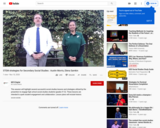
This session will highlight several successful social studies lessons and strategies utilized by the presenters to engage high school social studies students (grades 9-12). These lessons are intended to spark student engagement and collaboration. Lesson plans will include historic newscasts, 3D printing, and social studies music videos. These lessons can be tailored to fit the needs of any secondary social studies learner.
Links to session resources:
https://docs.google.com/document/d/1ealIUkEl0QGMu-PkWp0RFohy9Aq4ooZ1ASsX8N0L-8c/edit#heading=h.85gvaiy8bs39
https://docs.google.com/document/d/1Jf977UcTqums34WXfeJ_VUBIgkhEiD3p_gQNoH9Y3Vw/edit#heading=h.85gvaiy8bs39
https://docs.google.com/document/d/10UU-YsQZa3ccmn9r9-mTyzUxuYDzYAU3ZF4IYauFdhM/edit#heading=h.85gvaiy8bs39
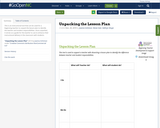
This is an instructional tool that can be used for a beginning teacher to unpack the lesson plan to identify the teacher and student responsibilities. Once unpacked, it serves as a guide for the teacher to use to enhance their instructional delivery in the classroom with students.
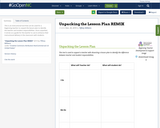
This is an instructional tool that can be used for a beginning teacher to unpack the lesson plan to identify the teacher and student responsibilities. Once unpacked, it serves as a guide for the teacher to use to enhance their instructional delivery in the classroom with students.
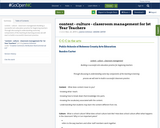
content - culture - classroom management
Building a successful arts education practice for beginning teachers
Through discussing & understanding some key components of the teaching & learning
process we will start to build a successful classroom practice.